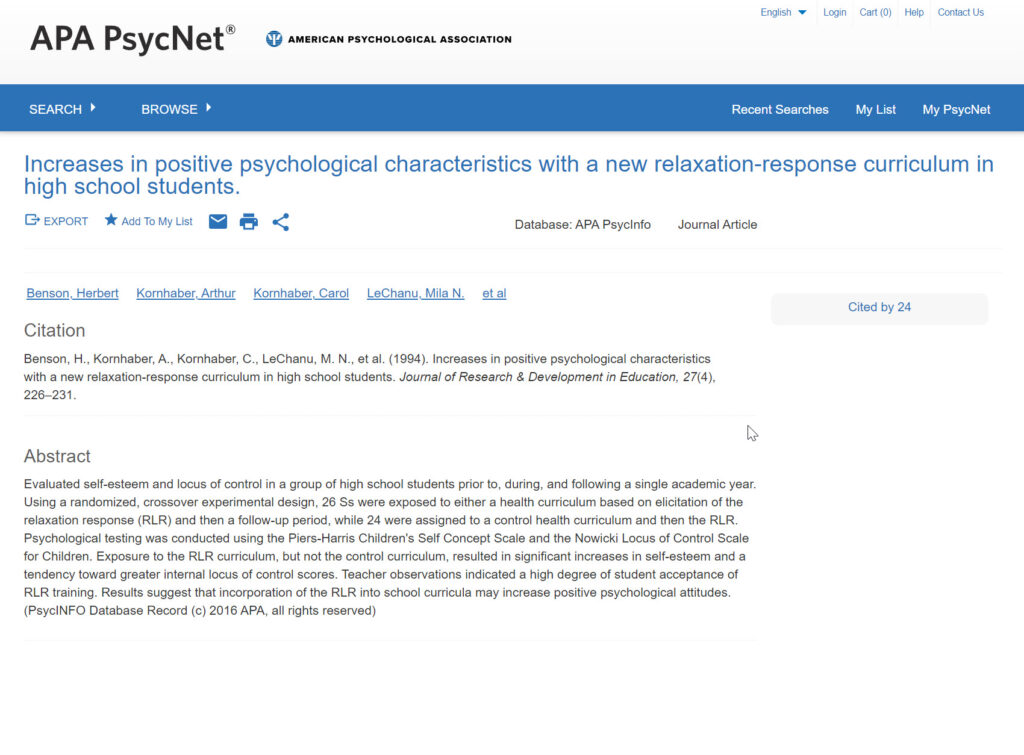Evaluated self-esteem and locus of control in a group of high school students prior to, during, and following a single academic year. Using a randomized, crossover experimental design, 26 Ss were exposed to either a health curriculum based on elicitation of the relaxation response (RLR) and then a follow-up period, while 24 were assigned to a control health curriculum and then the RLR. Psychological testing was conducted using the Piers-Harris Children’s Self Concept Scale and the Nowicki Locus of Control Scale for Children. Exposure to the RLR curriculum, but not the control curriculum, resulted in significant increases in self-esteem and a tendency toward greater internal locus of control scores. Teacher observations indicated a high degree of student acceptance of RLR training. Results suggest that incorporation of the RLR into school curricula may increase positive psychological attitudes. (PsycINFO Database Record (c) 2016 APA, all rights reserved)
Increases in positive psychological characteristics with a new relaxation-response curriculum in high school students.
Publication
Journal of Research and Development in Education
27(4), 226-231
Abstract
Web and Email Links
Related Listings
Journal
Intelligence
High intelligence is touted as being predictive of positive outcomes including educational success and income level. However, little is known about the difficulties experienced among this population. Specifically, those with a high intellectual capacity (hyper brain) possess overexcitabilities in various domains that may predispose them to certain psychological disorders as well as physiological conditions involving elevated sensory, and altered immune and inflammatory responses (hype […]
Journal
Journal of Integrative and Complementary Medicine
Several hundred peer-reviewed studies in the past 20 years have shown that the relaxation response and mind–body interventions are clinically effective in the treatment of many health problems that are caused or made worse by stress. Recent studies show that mind–body interventions may improve prognosis in coronary heart disease and can enhance immune functioning. It is hypothesized that mind–body interventions reduce sympathetic nervous system activation and increase parasympathetic […]
Journal
Annals of the New York Academy of Sciences
A wakeful hypometabolic state accompanies the practice of a relaxational, meditation technique called Transcendental Meditation. The state is characterized by decreased oxygen consumption, carbon dioxide elimination, respiratory rate and minute ventilation, with no change in respiratory quotient. Arterial blood pH and base excess decrease slightly while arterial blood lactate markedly decreases. Systolic, diastolic, and mean arterial blood pressures remain unchanged. The electroenceph […]

